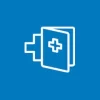Whether you file your own tax returns or have tax at source deducted from your salary, there is a chance that you are paying more income tax than necessary. More than 100 possible tax deductions are available in Switzerland, with some being broadly applicable while others only apply to a very limited number of situations. In Switzerland, taxes are levied on federal, cantonal and municipal levels. Federal income tax deductions are identical for all taxpayers.
Here, we list 11 federal income tax deductions which apply countrywide.
1. Insurance premiums. The deduction for health insurance, supplementary accident insurance and life insurance premiums is combined with the deduction for interest earned on savings. This deduction is currently limited to 1800 Swiss francs per adult or 3600 francs per married couple or registered partnership. If you do not contribute to either an occupational pension fund (pillar 2) or the pillar 3a, then higher tax deductions of 2700 francs (singles) and 5400 francs (couples) apply. You get an additional 700-franc deduction for each child or other eligible dependent in your care.
2. Commuting. Swiss tax laws favor commuters who use public transportation. If you get to work and back by bus, train, tram, boat, cable car, or other common carrier, you can deduct up to 3200 francs of ticket costs from your taxable income. If you commute using your own moped or e-bike (motor speed above 25 km/h) with a yellow license plate, you can claim a flat 700-franc tax deduction. You can normally claim a tax deduction for commuting by car or motorcycle if your home or workplace is located at least one kilometer from public transportation, or if commuting by car results in substantial time savings. The tax deduction is 70 centimes per commuting kilometer for cars, and 40 centimes for motorcycles.
3. Eating out. If you work far from where you live, you can deduct the cost of eating out from your taxable income. The flat deduction is 15 francs per workday up to a maximum of 3200 francs per year. If your employer provides discounted meals, the flat deduction is 7.50 francs per workday up to a maximum of 1600 francs per year.
4. Debt. Interest which you pay for loans can be deducted from your taxable income. Eligible loans include mortgages, personal loans, and credit card loans, among others. Car leasing payments, on the other hand, are not tax-deductible. Note: You can only deduct the interest you pay, and not your loan repayments or the debt itself.
5. Work-related expenses. A deduction equal to 3 percent of your net salary – with a 2000-franc minimum deduction and a 4000-franc maximum deduction – applies to spending on reference material, specialized workplace clothing, necessary equipment (including computers and software) and some other career-related costs.
6. Donations. Donations to eligible Swiss charitable organizations can be deducted from taxable income if they add up to at least 100 francs per year in total. This deduction cannot exceed 20 percent of your taxable income – even if you donated more than that amount. Donations to Swiss political parties and/or party membership fees are deductible up to a maximum of 10,300 francs per year.
7. Couples. If you have a spouse or registered partner, you can deduct 2700 francs from your taxable income. If both of you work, you can claim an additional double-earner deduction equal to 50 percent of the lower of your two incomes, with a minimum deduction of 8300 francs and a maximum deduction of 13,600 francs.
8. Dependents. If you have kids who are underaged or completing their initial studies, you can deduct 6600 francs per child from your taxable income. You can also claim a 6600-franc deduction for disabled adult dependents, if your cost of caring for them is equal to or greater than that amount.
9. Retirement savings. Money which you pay into the pillar 3a (into a pillar 3a savings account or pillar 3a retirement fund, for example) can be deducted from your taxable income. The maximum pillar 3a tax deduction can change from year to year. Both compulsory and voluntary contributions to your occupational pension fund (pillar 2) are tax-deductible. Contributions to the Old Age and Survivors Insurance (OASI) scheme (pillar 1) are also fully tax-deductible.
10. Childcare. Parents dealing with the high cost of childcare can find some financial relief in the tax deduction for childcare costs. If you cannot take care of your child yourself because you are working or studying, fees charged by a third-party caretaker (a daycare center, for example) can be deducted from taxable income. The maximum deduction for federal income tax is 25,000 francs.
11. Education and continuing education. The costs of education above the secondary level are tax deductible, up to a maximum deduction of 12,700 francs per year.
Take advantage of all available tax deductions
In addition to these key tax deductions, there are dozens more which may or may not apply to your financial situation. Deductions for cantonal tax and municipal tax vary based on your place of residence. Because cantonal and municipal income taxes are often higher than federal income taxes, consulting a qualified tax advisor who knows the tax laws of your municipality and canton can save you money in the long run. Taking time to carefully review all possible tax deductions will help you avoid paying more taxes than necessary, freeing up money for other expenses and investments.
More on this topic:
These are the taxes you pay in Switzerland
Tax savings in Switzerland: Key tips
Tax deductions for expatriates moving to Switzerland explained
Swiss taxes: Using the third pillar to save
Earning interest by paying taxes in advance
Swiss tax at source for expats and cross-border workers explained
Taxes on stock market gains explained








